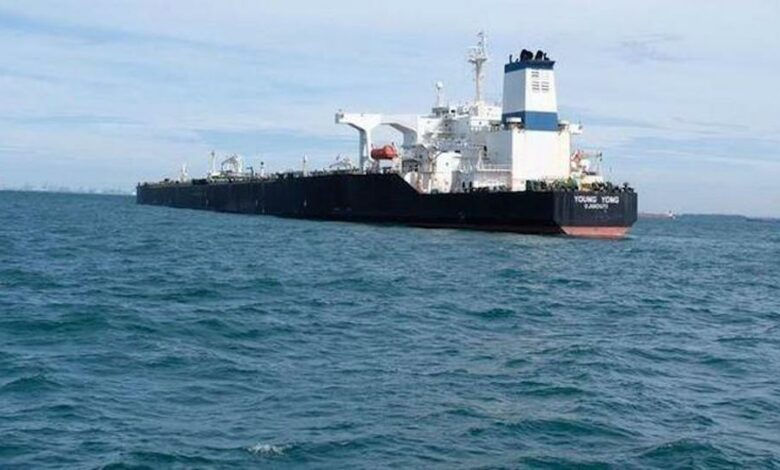Dark fleet flags attempting to bribe states to avoid detention

Dark fleet facilitators are attempting to persuade flag states to turn a blind eye to their operations, a new report from one of the world’s top shipping inspectorates has warned.
The Paris Memorandum of Understanding on Port State Control (Paris MoU) held its 57th committee meeting in Madrid earlier this month, and has just released details of what was discussed including news that some flag states are trying to hatch plans to avoid detentions.
The Paris MoU, one of the world’s top two port state control bodies, described recent attempts by unspecified flag states to conclude bilateral agreements with port states to avoid detentions.
The growth of the so-called dark fleet in the wake of the 27-month war between Russia and Ukraine has seen many previously obscure flags double or triple in size.
The International Maritime Organization (IMO) recently called on flag states to crack down on the illicit activities of shadow tankers and enforce regulations on ship‐to‐ ship operations. The IMO has also asked port states to subject potential shadow vessels to enhanced inspections.
However, countering the illicit trade in Russian and Iranian oil is proving difficult, as smuggling networks employ more sophisticated methods and there is continued demand for discounted oil in Asia.
Written evidence submitted to the UK parliament last month by the International Group of P&I Clubs warned that the oil price cap, introduced 17 months to go in a bid to cut Russian revenues, is not working.
British politicians have been holding an inquiry to look at how sanctions against Russia are working. The International Group, made up of 12 P&I clubs that cover more than 85% of world tonnage, warned last month that more than 800 tankers have departed from their books since the cap came in, with the rule’s attestation scheme coming in for particular criticism.
The cap allows traders, shipowners, charterers, and financial services providers to engage in the sale, purchase and carriage of Russian oil and oil products by sea, provided the sale price of Russian oil or oil products are sold at or below the price stipulated by the G7 and its coalition of states.
Evidence of the sale price of such products is dependent on a process of attestations that must be provided initially by the oil products trader.
“These attestations may or may not provide accurate price information thereby exposing shipowners and insurers to allegations that they have breached the rules,” the International Group argued, adding: “The attestation is a flawed regime which potentially exposes both the P&I Club and a shipowner, operator, charterer to a breach of the [cap].”
The insurers warned that the price cap “appears increasingly unenforceable” as more ships and associated services move into the shadow fleet.
Moving Russian oil through Europe has come under far greater scrutiny in recent weeks with the bloc widely expected to take further measures against the so-called shadow fleet when further European Union sanctions are unveiled shortly.
In the southeast of the continent, the Greek navy has made ship-to-ship transfers impossible at one of the top European destinations for such activities. Since May 1, citing military exercises, the Greek navy has put out of bounds an area in international waters southeast of the Peloponnese islands, six nautical miles off the coast of Laconia, a patch of water that has seen Russian-linked tankers dot the horizon over the past couple of years.
In the north of Europe, meanwhile, littoral states around the Baltic, led by new NATO member Sweden, are waging a diplomatic campaign to get other countries to back a greater crackdown on Russia’s shadow fleet passing through the region, concerned about the potential for environmental catastrophe with a number of near disasters reported among the ageing fleet of tankers over the past year.
EU foreign ministers have been liasing with G7 counterparts over upcoming shipping-specific sanctions.
Global insurer Allianz issued its annual shipping report today in which it noted: “Much of the shadow fleet is likely poorly maintained and may not have undergone appropriate inspections. Shadow tankers also participate in the dangerous practice of ship‐ to‐ship transfers in the open ocean, as well as turning off AIS transponders to obscure their identity.”
Such vessels have been involved in at least 50 incidents to date, including fires, engine failures, collisions, loss of steerage, and oil spills, according to Allianz.
“Despite efforts to crack down on these vessels, the number of tankers is actually increasing, and we have seen a number of groundings and collision incidents. As long as there are sanctions on countries like Russia and Iran, the shadow fleet looks here to stay,” commented Captain Nitin Chopra, senior marine risk consultant at Allianz Commercial.
One recent report warned that unwinding the shadow fleet of tankers too quickly could cause a severe global economic shock.
The grey tanker fleet – as tracked by brokers BRS – has grown in size by 17% this year to number 787 units, equivalent to 8.5% of total tanker capacity. With more large ships classed as grey, the amount of tanker tonnage by dwt stands at a “staggering” 93.7m dwt, BRS stated in a recent tanker report, representing 13.7% of total tanker tonnage.
“Although regulators and governments are evidently keeping an eye on the grey fleet, its enormous size now arguably makes it harder to regulate since potentially excluding 13.7% of global tonnage would send tanker markets into an upward spiral, potentially causing an unwanted economic shock,” BRS warned.
BRS suggested further regulation needs to be gradual and targeted so as not to inject “undue volatility” into the markets.

This behaviour is clearly unacceptable so needs to be very expensive indeed.
Mandatory scrapping of unsafe vessels and sanctioned parties for all involved both ship and shore.